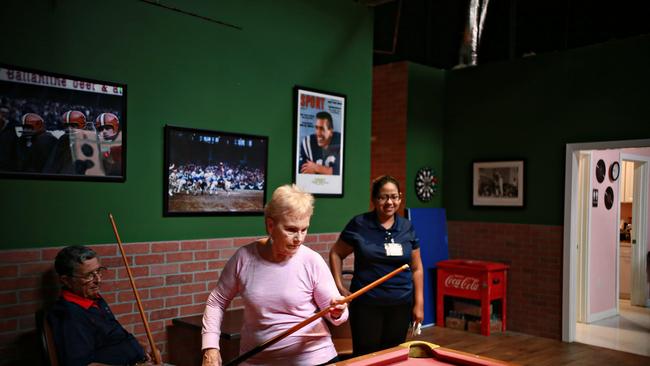Hormone from exercise may delay dementia
A hormone produced by exercise may slow the progress of Alzheimer’s disease and delay the onset of dementia, research suggests.

A hormone produced by exercise may slow the progress of Alzheimer’s disease and delay the onset of dementia, research suggests.
Previous studies have hinted that physical exercise may benefit people with neurodegenerative disorders such as Alzheimer’s.
New research involving experiments carried out in mice and published on Monday in the journal Nature Medicine has sketched out a biological mechanism that might explain such positive effects.
During exercise a hormone called irisin is released from muscle tissue into a person’s circulation. It appears to have a complex array of functions, including a role in the brain.
A team led by Fernanda De Felice, of the Federal University of Rio de Janeiro, found that irisin played a role in boosting the brain health and memory of mice that had been genetically engineered to be susceptible to Alzheimer’s.
The disease causes brain atrophy and memory loss, leading to dementia, disability, and death.
The scientists showed that learning and memory could be damaged by suppressing a gene, known as FNDC5, that is behind the production of irisin. Restoring the gene reversed these effects in the mice.
When the pathways via which irisin sends signals in the brain were blocked, the beneficial effects of physical exercise on cognitive processes in the mice were lost.
The authors of the study also found that irisin was expressed at lower levels in the brains of humans with Alzheimer’s disease, compared with healthy control subjects.

Rosa Sancho, of Alzheimer’s Research UK, said that the Rio team’s findings offered a new avenue for research.
“There are many people with dementia or at high risk of dementia who have health conditions that make regular exercise more difficult. Drugs designed to target the hormone identified in this research could potentially bring some of the benefits of physical activity to people who may be less able to exercise.”
She cautioned, however, that the research was at a very early stage.
“While some of the findings emerge from examination of brain tissue from people with Alzheimer’s, the insights gained from experiments with mice will need to be followed up in studies involving people,” she said.
The Rio researchers said that further studies are required to understand how irisin enters and interacts with the brain, as well as to assess whether the hormone has the same effect in humans as in their rodent models.
Dementia and Alzheimer’s disease were the leading cause of death in England and Wales last year, accounting for nearly 13 per cent of all registered deaths, according to the Office for National Statistics.
Rhys Blakely is Times science correspondent
The Times


